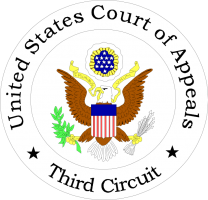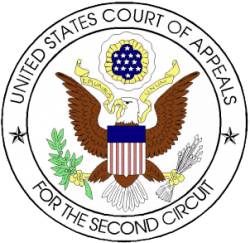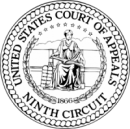As you may recall, the Supreme Court of California is currently reviewing two significant appellate court rulings involving the “one form of action” rule: 1. Coker v. JP Morgan Chase Bank, N.A., 218 Cal. App. 4th 1 (4th Dist. 2013); and, 2. First California Bank v. McDonald, 231 Cal. App. 4th 550 (5th Dist. 2014). In Coker, to resolve a nonjudicial foreclosure, the mortgagee of a purchase-money loan conditioned a short sale on the borrower’s agreement to remain responsible for any deficiency. A copy of the Appellate Court’s ruling in Coker is available here: Link to Opinion. McDonald involves a…
The U.S. Court of Appeals for the Eleventh Circuit recently held, in a case of first impression, that a creditor violates the bankruptcy discharge injunction by filing a proof of claim on a debt that was previously discharged in another bankruptcy proceeding. A copy of the opinion is available at: Link to Opinion. Husband and wife debtors filed a Chapter 13 bankruptcy petition in 2006. The case was converted to a Chapter 7 liquidation, and the subject debt, a deficiency of approximately $11,000 on a sales contract for a mobile home, was discharged in 2009. In 2012, the debtors filed…
The U.S. Court of Appeals for the Second Circuit recently denied the defendant debt buyer’s petition for panel rehearing, or, in the alternative, for rehearing en banc, as to its ruling (discussed here) that federal National Bank Act preemption applicable to the loan originator does not allow a non-bank debt buyer to charge interest in excess of state usury limits. In so ruling, the Second Circuit noted that, “[a]lthough it is possible that usury laws might decrease the amount a national bank could charge for its consumer debt in certain states (i.e., those with firm usury limits, like New York),…
The U.S. Court of Appeals for the Third Circuit recently held, in a matter of first impression among all of the Courts of Appeals, that a debt collector bears the burden of proving that a communication with a third party falls within the exception for location information contained in subsection 1692b of the federal Fair Debt Collection Practices Act (FDCPA). A copy of the opinion is available at: Link to Opinion. In 2005, a borrower obtained a loan in the amount of $43,300 secured by a mortgage. The mortgage went into default in 2011. The borrower called the mortgage servicer…
The U.S. Court of Appeals for the Second Circuit recently reversed the dismissal of a consumer’s claim alleging that a mortgage loan servicer violated the federal Fair Debt Collection Practices Act by sending a servicing transfer notice that did not contain the disclosures required under the FDCPA, 15 U.S.C. 1692g. A copy of the opinion is available at: Link to Opinion. The borrower argued that the defendant mortgage servicer violated the FDCPA by sending him two written communications: (1) a RESPA transfer of servicing notice, informing the borrower that the mortgage servicer had become the servicer for the borrower’s mortgage…
The Florida Second District Court of Appeal recently upheld a mortgagee’s notice of default that substantially complied with the applicable provision of the mortgage, ruling that strict compliance is not required. A copy of the opinion is available at: Link to Opinion. The borrowers obtained a mortgage in May 2007 and defaulted in November 2008. In December 2008, the mortgagee sent the borrowers a letter demanding that they cure the default within 30 days, providing the amount needed to reinstate the loan, and warning that failure to cure would result in acceleration and foreclosure. In February 2009, the mortgagee filed…
The Florida Third District Court of Appeal recently granted rehearing en banc in Deutsche Bank Trust Company Americas v. Beauvais, a case holding that a Florida five-year statute of limitations would bar the re-filed foreclosure action at issue. In so ruling, the Court posed two factual questions to the parties, and requested amicus curiae briefs from the Mortgage Bankers Association of South Florida, the Business Law Section of the Florida Bar, the Real Property Probate & Trust Law Section of the Florida Bar, the Florida Alliance for Consumer Protection, Fannie Mae, and Freddie Mac. A copy of the ruling is…
A large mortgage lender recently prevailed against both the City of Los Angeles and the County of Cook, Illinois, in lawsuits alleging “disparate impact” discrimination in violation of Title VIII of the Civil Rights Act of 1968, 42 U.S.C. § 3601 et seq., more commonly known as the federal Fair Housing Act (FHA). As you may recall, the City of Los Angeles alleged that Wells Fargo & Co. and Wells Fargo Bank, N.A. “engaged in a continuous pattern and practice of mortgage discrimination in Los Angeles since at least 2004 by imposing different terms or conditions on a discriminatory and…
Furnishing information during and after a consumer bankruptcy is a complex task, and implicates the Bankruptcy Code, Fair Credit Reporting Act and Fair Debt Collection Practices Act. Recent litigation suggests that both the content and the timing of the furnished information poses unique risk to the credit and collections industry. And a recent string of lawsuits is raising the stakes on information furnished prior to bankruptcy. On Aug. 19 at 2 p.m. Eastern, we will offer our take on the top issues coming out of recent decisions and what you can do to contain risk and enhance your credit reporting…
National financial services law firm Maurice Wutscher LLP has opened its 11th office, hiring financial services attorney Eric Rosenkoetter to lead the firm’s Texas litigation matters in its new Austin office. Rosenkoetter will practice in the firm’s Commercial Litigation, Consumer Credit Litigation and Regulatory Compliance groups, joining Maurice Wutscher’s skilled team of 25 attorneys focused on defense of the financial services industry in offices throughout the United States. In addition to Austin, Maurice Wutscher has offices in Chicago, Cincinnati, Flemington, Indianapolis, Miami, New York, Philadelphia, San Diego, San Francisco and Washington, DC. Rosenkoetter has substantial experience as a litigation attorney…
The U.S. Court of Appeals for the Eleventh Circuit recently affirmed a grant of summary judgment to a servicer and its counsel related to a Georgia non-judicial foreclosure. In so ruling, the Court held that the borrowers had no standing to challenge supposed defects in the assignment of a security deed, and could not sustain a claim for wrongful foreclosure absent evidence that the supposed wrongful conduct actually caused the borrowers’ injuries. A copy of the opinion is available at: Link to Opinion. The case arose out of the servicer’s foreclosure of the borrowers’ residence. Based on this foreclosure, the…
The U.S. Court of Appeals for the Ninth Circuit recently held that, in determining whether a putative class action satisfied the jurisdictional requirements of the federal Class Action Fairness Act, amounts in controversy as to non-class and class claims may not be aggregated to meet CAFA’s diversity requirements. More specifically, the Ninth Circuit held that, “where a plaintiff files an action containing class claims as well as non-class claims, and the class claims do not meet the CAFA amount-in-controversy requirement while the non-class claims, standing alone, do not meet diversity of citizenship jurisdiction requirements, the amount involved in the non-class…











